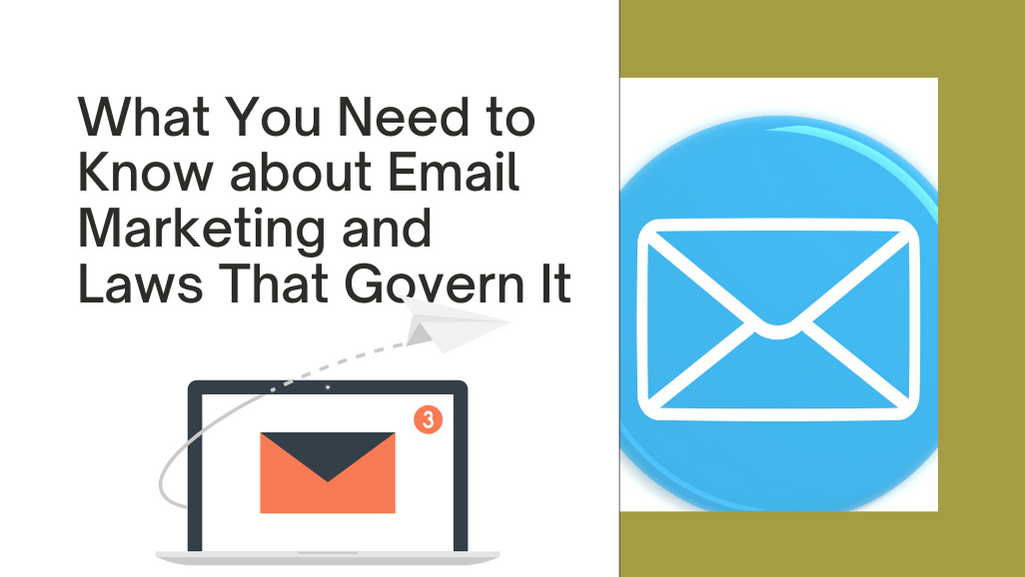Email marketing is a powerful tool for businesses to connect with their audience and drive conversions. However, with the rise of spam and privacy concerns, governments around the world have enacted laws and regulations to protect consumers and businesses. In this article, we will provide an overview of the laws that govern email marketing and what businesses need to know to stay compliant.
The CAN-SPAM Act
The CAN-SPAM Act is a law that governs commercial email messages in the United States. It sets the rules for commercial email, establishes requirements for commercial messages, and gives recipients the right to have emails stopped from being sent to them. Here are some of the key requirements of the CAN-SPAM Act:
- Include your business postal address in all emails.
- Make it easy for email recipients to unsubscribe.
- Honor opt-out requests within 10 business days.
- Use subject lines that reflect the email content (avoid deceptive clickbait).
- Ensure anyone sending emails on your behalf complies with CAN-SPAM.
- Have accurate email header fields (from, to, reply to, and routing information).
- Let recipients know that a commercial email is an ad or promo versus an account statement.
The California Consumer Privacy Act (CCPA)
The California Consumer Privacy Act (CCPA) is a law that governs the collection and use of personal information of California residents. It requires businesses to provide consumers with certain rights regarding their personal information, including the right to know what personal information is being collected, the right to request deletion of personal information, and the right to opt-out of the sale of personal information. Here are some of the key requirements of the CCPA:
- Provide consumers with notice of what personal information is being collected and how it will be used.
- Provide consumers with the right to request deletion of their personal information.
- Provide consumers with the right to opt-out of the sale of their personal information.
- Provide consumers with the right to access their personal information.
The General Data Protection Regulation (GDPR)
The General Data Protection Regulation (GDPR) is a law that governs the collection and use of personal information of European Union (EU) residents. It requires businesses to provide consumers with certain rights regarding their personal information, including the right to know what personal information is being collected, the right to request deletion of personal information, and the right to opt-out of the sale of personal information. Here are some of the key requirements of the GDPR:
- Provide consumers with notice of what personal information is being collected and how it will be used.
- Provide consumers with the right to request deletion of their personal information.
- Provide consumers with the right to opt-out of the sale of their personal information.
- Provide consumers with the right to access their personal information.
The Privacy and Electronic Communications Regulations (PECR)
The Privacy and Electronic Communications Regulations (PECR) is a set of laws that governs electronic communications in the United Kingdom. It sets the rules for electronic communications, including email marketing, and establishes requirements for electronic messages. Here are some of the key requirements of the PECR:
- Obtain consent from individuals before adding them to your email list.
- Provide individuals with the right to opt-out of receiving electronic messages.
- Provide individuals with the right to access their personal information.
Best Practices for Email Marketing
In addition to complying with the laws that govern email marketing, businesses should also follow best practices to ensure that their email marketing campaigns are effective and engaging. Here are some best practices for email marketing:
- Obtain consent from individuals before adding them to your email list.
- Provide individuals with the right to opt-out of receiving electronic messages.
- Provide individuals with the right to access their personal information.
- Use a personalized greeting to create a welcoming atmosphere.
- Create curiosity to encourage recipients to read further.
- Convey urgency to encourage recipients to take action.
- Highlight benefits to establish yourself as an authority in your industry.
- Use social proof to establish credibility and build trust with your audience.
- Add humor to engage your audience and build a connection with them.
- Tell a story to establish a connection with your audience and build trust.
- Keep your email opening line short and sweet to capture your recipient’s attention.
- Test and analyze your email marketing campaigns to optimize your open rates and engagement.
In conclusion, email marketing is a powerful tool for businesses to connect with their audience and drive conversions. However, with the rise of spam and privacy concerns, governments around the world have enacted laws and regulations to protect consumers and businesses. By complying with the laws that govern email marketing and following best practices, businesses can create effective and engaging email marketing campaigns that drive results.

